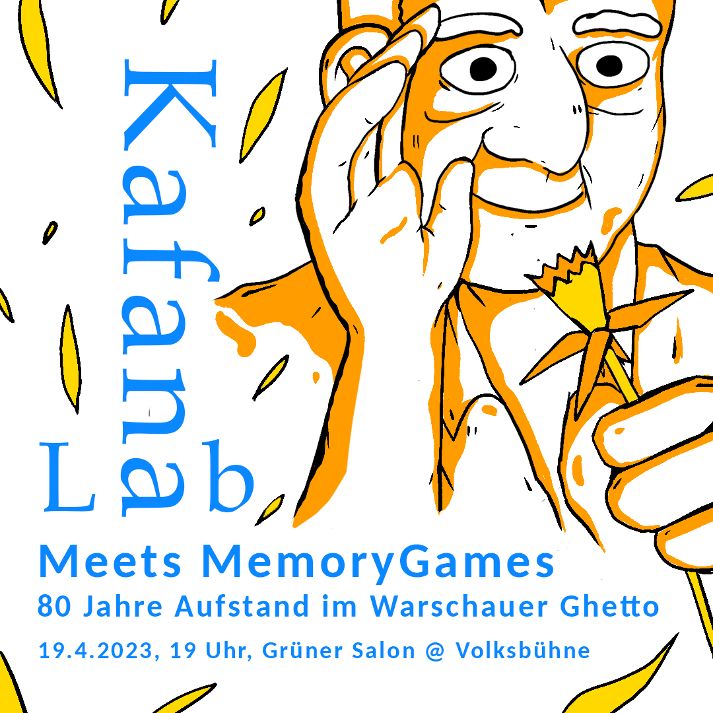
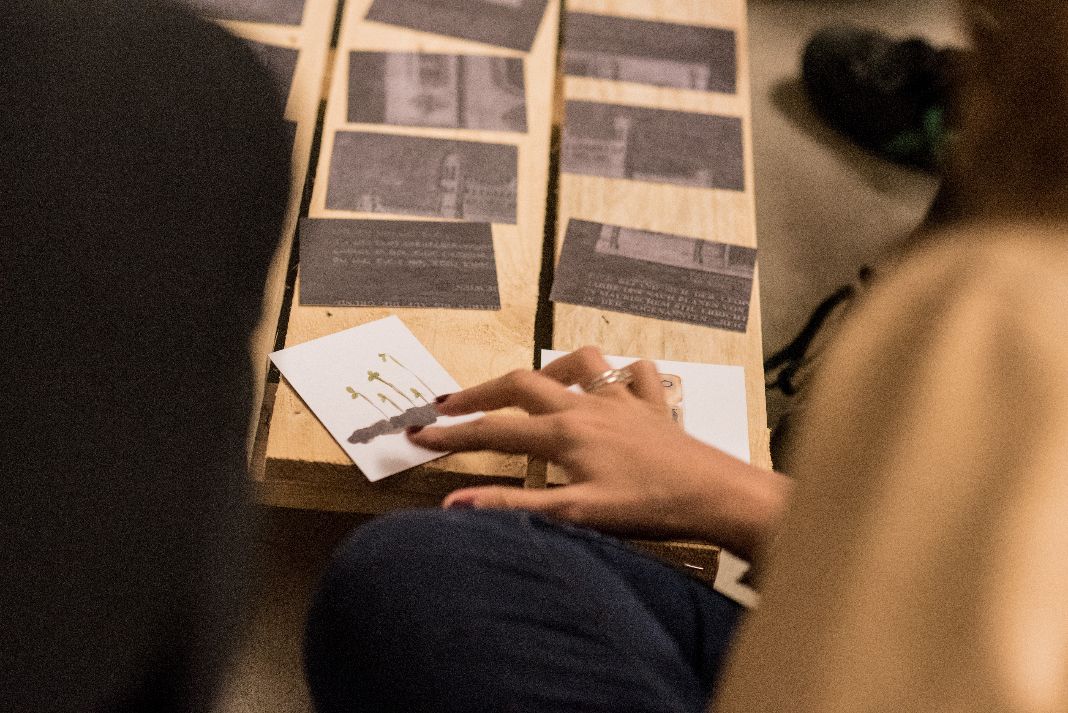
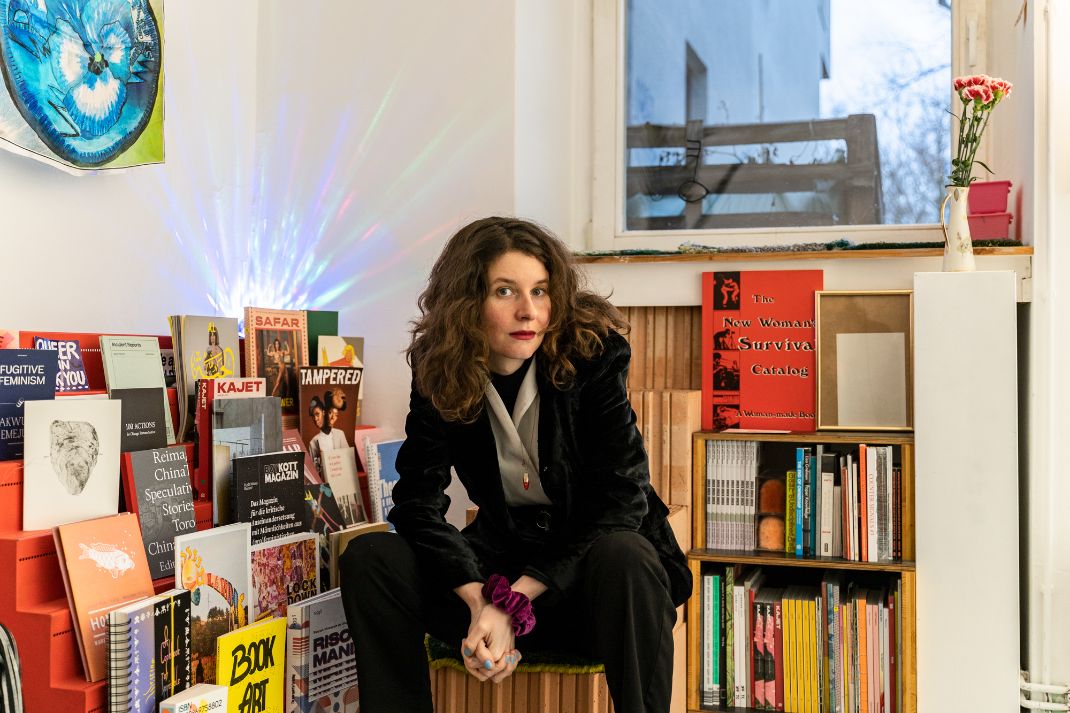
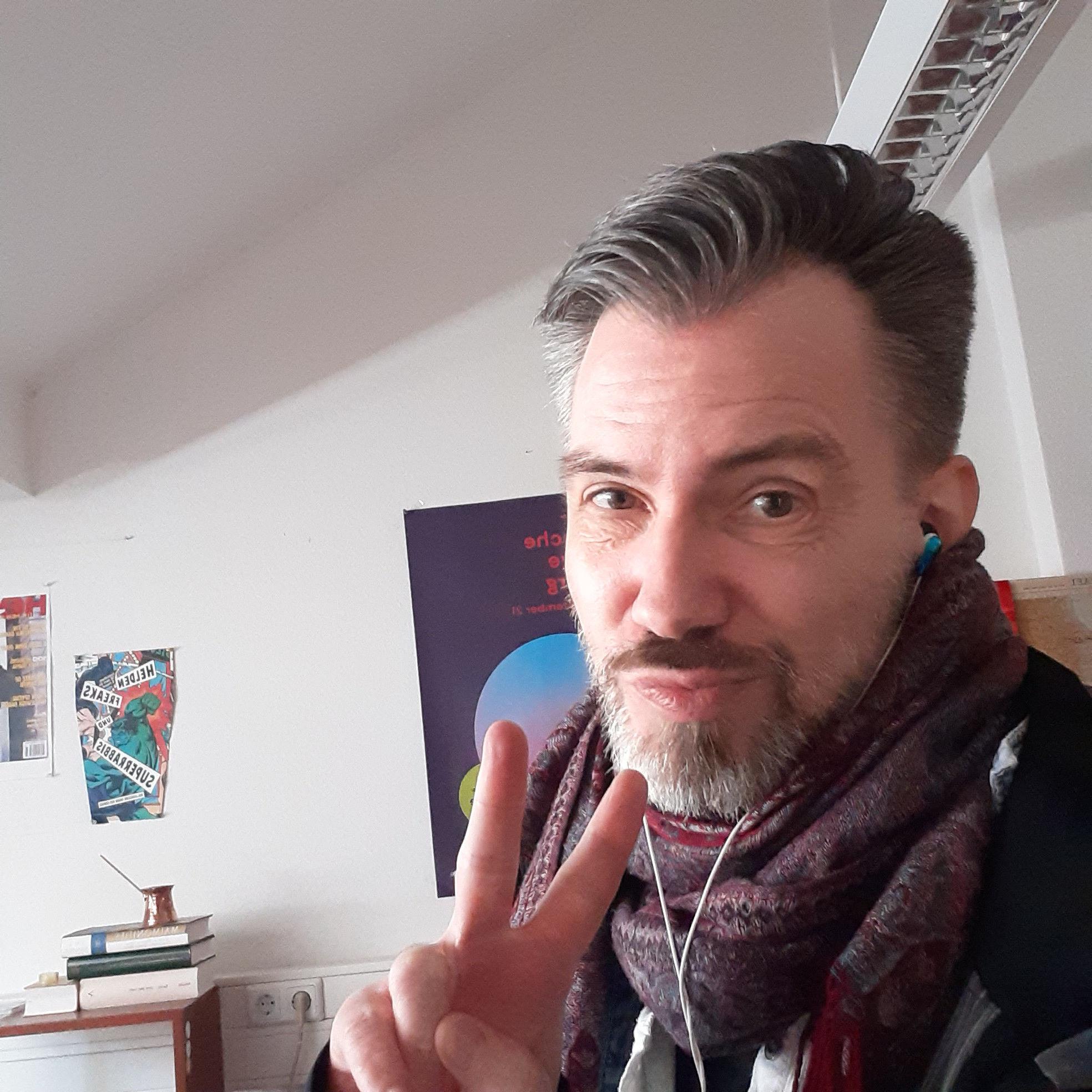
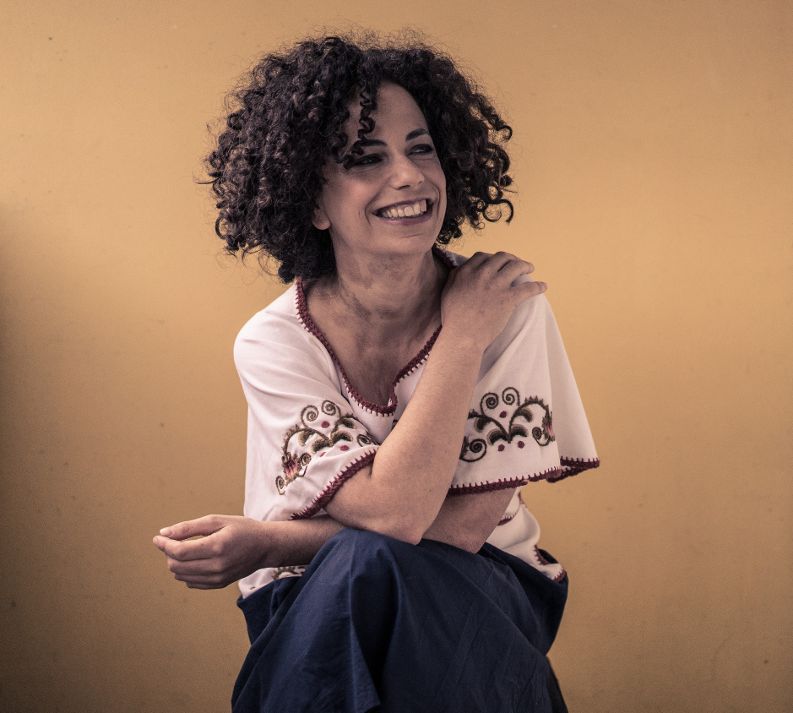
Kafana Lab meets MemoryGames: 80 Years of Warsaw Ghetto Uprising
When the Kafana Lab meets the MemoryGames, it is important to honor resistance together and to think about remembrance in the sense of an active, sustainable culture of remembrance.
On April 19, 1943, the Warsaw Ghetto Uprising began after two thousand German soldiers entered the ghetto to finally dissolve it. They were confronted by several hundred young people from the underground Jewish Fighting Organization (ŻOB) and the Jewish Military League. For four weeks, the heroic, albeit hopeless, uprising continued.
80 years later, we would like to commemorate this act of resistance and find new common approaches to deal with history artistically. We commemorate Marek Edelman, a commander in the uprising, and join the daffodil campaign of the Museum of the History of Polish Jews POLIN in Warsaw. We will hear introductory words from Frederek Musall.
In addition, this Kafana Lab invites you to an interactive memory game by Nina Prader with the usual freshly brewed mocha coffee and slivovitz schnapps. All those present are asked to share personal and collective memories and perspectives on history or historical knowledge with each other on the basis of the card sets designed by Nina Prader. This extraordinary memory game is a mediation tool for commemorating the Shoah and at the same time an exercise to raise awareness of questions of history, identity, positioning, flight, asylum, exile and migration of today and then.
The evening will be musically accompanied by the cellist ILLAY.
What is Kafana Lab? Inspired by the traditional coffee houses of Southeast Europe, so-called „Kafanas“, which are considered the cradle of modern (civil) society in the Balkans, the experimental event series „Kafana Lab“ negotiates visions of a new society – and a strictly feminist and anti-racist future. The artistic input, accompanying music and the freshly brewed mocha coffee stimulate a critical exchange of structure and power.
„Kafana Lab meets MemoryGames“ is organized in cooperation with the Coalition for Pluralistic Public Discourse (CPPD). It is also funded by the Berlin Senate Department for Culture and Europe.
Biographies:
Nina Prader is an artist, writer, curator and independent publisher with exhibitions and publications in Boston, New York, Vienna, Salzburg, Berlin and London. Prader’s artistic work moves at the intersection of publication to social justice in community, education and art. She studied at the Museum School of Fine Arts in Boston (TUFTS University) and at the Slade School of Fine Art (University College London). She received her Master of Arts in Critical Studies from the Academy of Fine Arts in Vienna. Lady Liberty Press is the name of her independent micro-publisher of art, printed matters and monuments. In this context, she developed, among other things, MemoryGames, a dialogic card game to commemorate the Shoah and beyond, as well as the Intersectional Commemoration Club Risograph Reader, which deals with various subject areas of remembrance culture. In 2022, Nina Prader was part of the artist-in-residence program of the exhibition „Revenge. History and Fantasy“ at the Jewish Museum Frankfurt and conceived the graphic novel „The Ringends“ as part of the commemorative project „Twelve Months — Twelve Names | 50 Years of the Munich Olympics Assassination“. Most recently, she was librarian of the Lady Liberty Library, Berlin.
Frederek Musall has been a full professor of Jewish Studies/Religious Studies at the University of Würzburg since April of this year. Prior to that, he worked for almost 14 years at the Heidelberg University of Jewish Studies as Professor of Jewish Philosophy and Intellectual History. He is one of the co-founders of the Jewish-Muslim Cultural Days Heidelberg (JMKT) and a member of the Coalition for Pluralistic Public Discourse (CPPD). Together with Johannes Becke and Beyza Arslan, he hosts the podcast „Mecca and Jerusalem – a podcast on Jewish-Muslim relations“ (e.g. on i-Tunes & Spotify).
ILLAY can be recognized by her glowing mane of curls with electric bass, cello with connected loop machine or megaphone in her hand. Her songs are like sweet medicine: melancholic lyrics are embedded in warm melodies – rich in string instruments, guitars and a touch of electronica. ILLAY sings their oriental-indie-pop songs in Hebrew, English and French.
The Coalition for Pluralistic Public Discourse (CPPD) is a network of around 50 discourse-shaping intellectuals, scholars, artists and activists who work and research on the culture of remembrance and diversity in a wide variety of ways. In addition to criticizing the status quo of German and European remembrance politics, the aim of the network, which was initiated in 2021, is to develop new concepts for pluralistic remembrance. The curator of the CPPD is the poet and publicist Dr. Max Czollek. Johanna Korneli and Jo Frank are leading the project. The CPPD is a project of DialoguePerspectives. Discussing Religions and Worldviews e.V.
- 01:00Grüner Salon
Kafana Lab